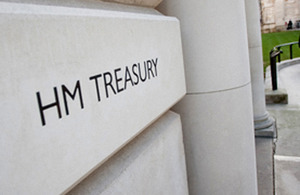
In her first Budget, the Chancellor has pledged to protect education and early years priorities, allocating £1.4 billion to school rebuilding, a move underscoring the government’s commitment to
improving educational infrastructure. This investment aims to remove barriers to opportunity, ensuring every child has the chance to succeed.
The education-focused budget outlines £1.4 billion to restore deteriorating school buildings, complemented by funding for children’s social care, breakfast programs, and early years childcare—initiatives reflecting the government’s dedication to putting education at the forefront of national priorities. The Chancellor's decision to safeguard education funding comes amidst an inherited £22 billion fiscal shortfall, signaling a commitment to making challenging choices while ensuring vital educational support.
This £1.4 billion commitment will sustain the School Rebuilding Programme, facilitating the reconstruction of 50 schools annually, fulfilling promises to parents, teachers, and communities that decaying educational facilities will be revitalized. This announcement follows a 5.5% pay rise for teachers, demonstrating the government’s intention to build a stronger partnership with the education sector.
Chancellor of the Exchequer, Rachel Reeves said: “This Government’s first Budget will set out how we will fix the foundations of the country. It will mean tough decisions, but also the start of a new chapter for Britain, by growing our economy through investing in our future to rebuild our schools, hospitals and broken roads.
Protecting funding for education was one of the things I wanted to do first because our children are the future of this country. We might have inherited a mess, but they should not suffer for it”.
Secretary of State for Education, Bridget Phillipson said: “This is a Budget about fixing the foundations of the country, so there can be no better place to start than the life chances of our children and young people. Our inheritance may be dire, but I will never accept that any child should learn in a crumbling classroom. We are determined to break down those barriers to opportunity, whether it’s brilliant early years, free breakfast clubs or high and rising standards in our schools, this government is putting education back at the forefront of national life”.
The budget also allocates £1.8 billion to expand government-funded childcare, supporting local authorities in delivering essential services. Additionally, £15 million in capital funding will be directed towards expanding school-based nurseries. Primary schools may apply for grants of up to £150,000, with plans to create up to 300 new or expanded nurseries in high-demand areas across England.
To further support disadvantaged families, the government will triple its investment in breakfast clubs to over £30 million, aiming to boost attendance, behavior, and student performance. A new £44 million fund will also support kinship and foster care, including a kinship allowance pilot in 10 local authorities. This initiative seeks to encourage family-based placements, increase the number of foster parents, and decrease dependency on high-cost residential care.
The government’s long-term commitment to education reform promises ongoing improvements to children’s social care, aiming to provide every child with a strong foundation for future success.
Chief Executive at Kinship, Dr Lucy Peake said:
“We are pleased that the Government has made a commitment to trialling a new Kinship Allowance so that more children can be raised in well-supported kinship care with family and friends who love them, delivering better outcomes for children and for the public purse than the care system.
We look forward to further reforms to children’s social care which should ensure that all kinship families get the financial, practical and emotional support they need and deserve”.








































